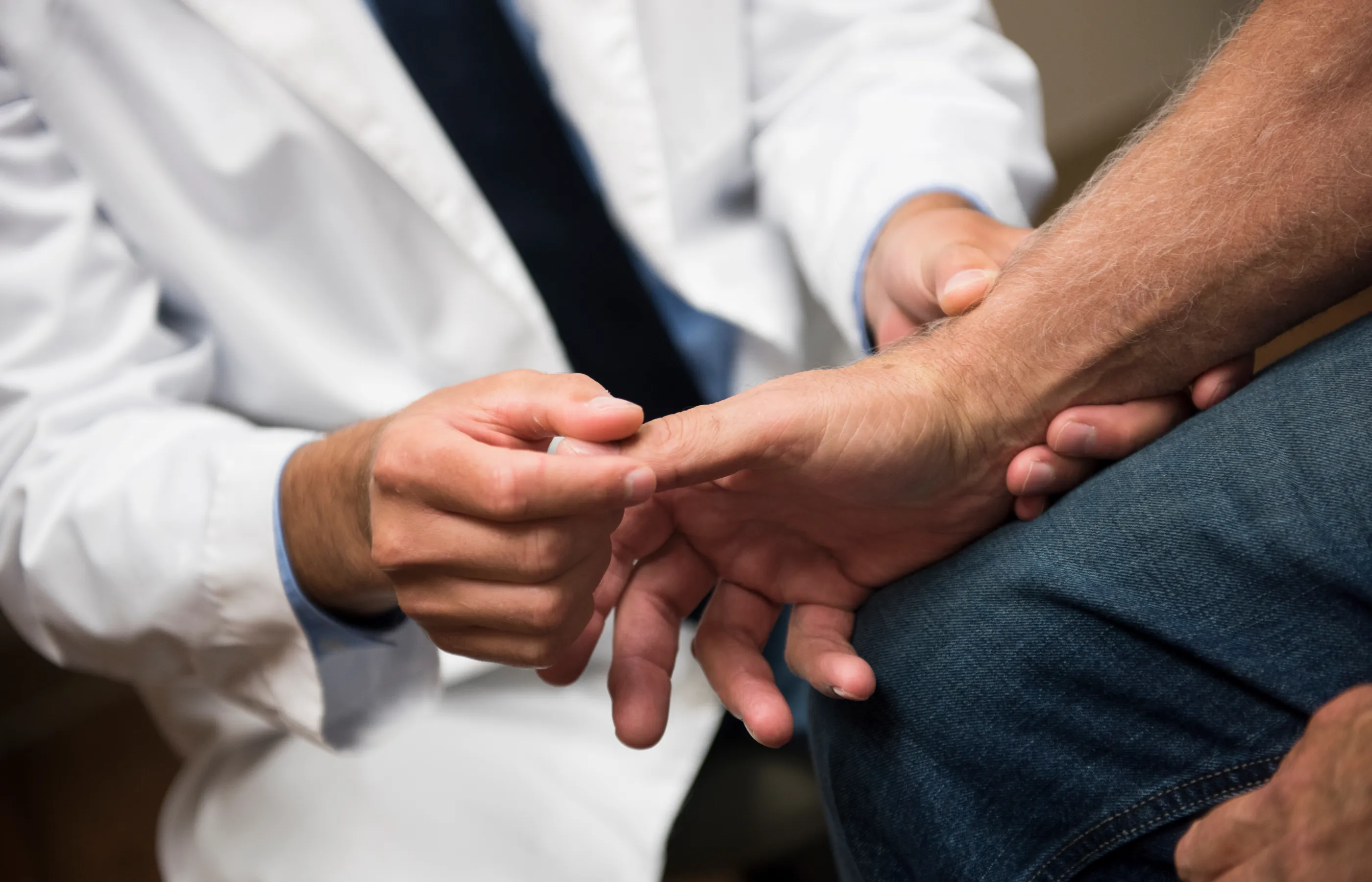
Types of Movement Disorders
The term "movement disorder" describes a neurological condition that affects how your body moves. Parkinson's disease is the most recognized movement disorder, but other disorders cause stiffness, involuntary muscle contractions or tremors, twitches and tics.
In addition to Parkinson's disease, our neurologists treat:
- Atypical parkinsonism (including multiple system atrophy (MSA), progressive supranuclear palsy (PSP) and corticobasal ganglionic degeneration (CBGD)
- Huntington's disease
- Essential tremor
- Dystonia
- Restless leg syndrome
- Torticollis
- Tics
Pediatric Movement Disorders
Parkinson's disease is generally diagnosed in older adults, but children can be affected by other movement disorders. At Novant Health, our pediatric neurologists provide expert care for dystonia, Tourette's syndrome and other pediatric movement disorders, including epilepsy symptoms.
What Is Parkinson's Disease?
Parkinson's disease is a movement disorder that affects your ability to walk or perform fine motor skills. This occurs when your nerve cells that make dopamine die or stop functioning.
Tremors are the most common symptom, but this progressive disease also causes other muscular, physical and sensory issues. The early signs of Parkinson's disease often go unnoticed until they noticeably impact your movement, speech or writing abilities.
Parkinson's Disease Risk Factors
Males over 60 years of age are most likely to get Parkinson's disease. Early-onset Parkinson's disease is less common but can develop at any time during young adulthood. You have a higher risk of developing Parkinson's disease if you have close relatives with the condition. Research has also shown that long-term exposure to certain pesticides and herbicides can increase the risk of developing the disorder.
Who Treats Movement Disorders?
Treatment for Parkinson's disease and other movement disorders typically starts with a neurologist. After assessing your condition, they may refer you to a movement disorder or Parkinson's specialist with advanced training and expertise in this specialized field.
We're here to Answer Your Questions
If you have questions about focused ultrasound treatment for essential tremor and tremor-dominant Parkinson's disease, please send us your contact information and one of our team members will call you.
Contact our Team
Effects of Parkinson's Disease
The Parkinson's Disease Journey
Parkinson's disease gets diagnosed through a physical exam, including an MRI or DaTscan study. If your physician determines that you have Parkinson's disease, they'll thoroughly explain the diagnosis, answer your questions and review your treatment options.
Creating a Personalized Care Plan
No two cases of Parkinson's disease are alike. Symptoms vary, as does how patients respond to treatment. You'll work with your physician to develop a personalized care plan designed around your symptoms, lifestyle and physical capabilities.
Support and Family Counseling
Parkinson's disease treatment combines medication, rehabilitation and counseling that helps you, your loved ones and caregivers manage the disease. Our goal is to provide treatment that reduces your symptoms, supports your mental health and improves your quality of life throughout your journey.
Treatment for Parkinson's Disease
Incision-free Brain Surgery for Tremors
Watch as neurosurgeon Charles Munyon, MD, uses MR-guided focused ultrasound to alleviate in minutes tremors that had caused Bobby Lippard’s hands to shake for years.

The NHRMC ALS Clinic
If you have been diagnosed with amyotrophic lateral sclerosis (ALS), you can receive advanced, comprehensive and streamlined care at the ALS Clinic located at New Hanover Regional Medical Center (NHRMC) in Wilmington, NC.
The NHRMC ALS Clinic can schedule you to meet with multiple members of your care team on the same day to save you and your family travel time and facilitate collaboration among the members of your care team.
Your NHRMC ALS Clinic Team
Your care team will be led by board-certified neurologists specializing in ALS treatment and include the following neuromuscular specialists:
- Respiratory therapists
- Physical therapists
- Occupational therapists
- Speech therapists
- Registered dietitians
- Licensed clinical social workers
- ALS Association representatives
- Representatives from mobility and durable medical equipment companies
The NHRMC ALS Clinic - Getting an Appointment
The New Hanover Regional Medical Center ALS Clinic is located at Novant Health Neurology – Doctors Circle (Building C).
If you are interested in making an appointment with our team, please speak with your neurologist about making a referral to our clinic.

Novant Health MyChart
MyChart is a secure, convenient online tool that lets you manage your healthcare. You can schedule appointments, view test results, refill prescriptions and even have virtual visits with your providers right from your computer or smartphone.


